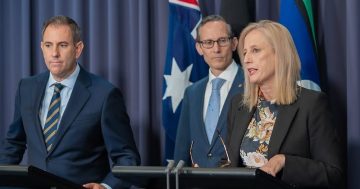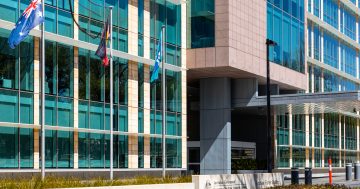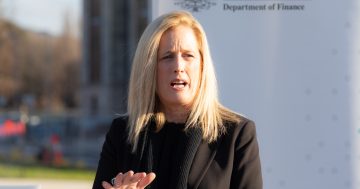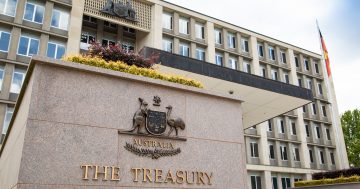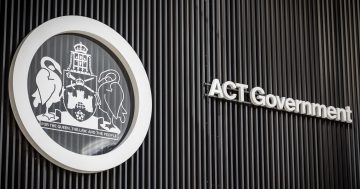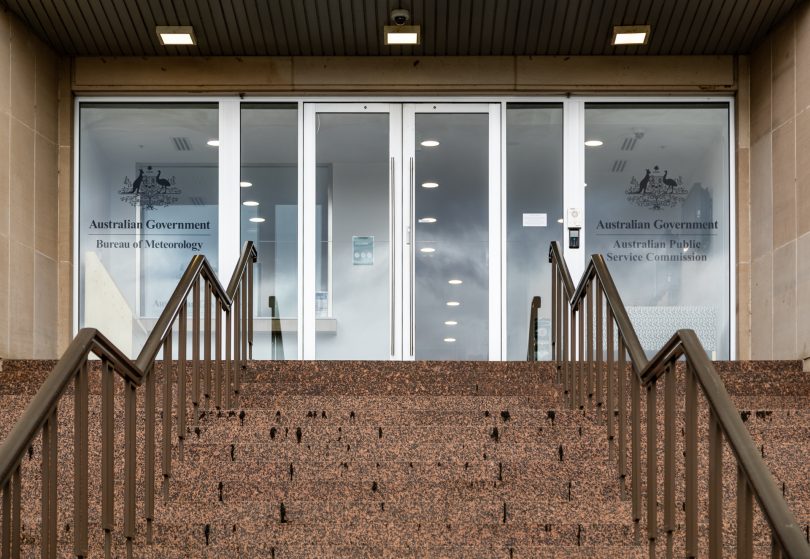
The Federal Budget details how the government will convert more external contractors into real APS jobs. Photo: Michelle Kroll.
Most agencies will see an increase in funding and staffing levels and a reduction in the use of external consultants, contractors and labour hire following the Budget last night.
Overall, the Budget delivers another 17,289 public sector jobs and will also ensure ongoing funding for the recent jobs increase at Services Australia.
The government is converting almost 9000 external APS workers into secure, public service employees.
By reducing the external spend and redirecting money into APS jobs, an additional $1 billion will be saved over the forward estimates – adding to the $3 billion delivered in the October 2022-23 budget following Labor’s election win.
The government will also conduct a new audit of employment to track how agencies adhere to demands to bring core public service work back into the public service.
In October last year, the government released new instructions for the APS to limit the use of contractors and consultants.
The APS Strategic Commissioning Framework requires core government work to be done by public service employees.
This work includes policy formulation, drafting Cabinet submissions, and developing legislation and regulations.
Finance and Public Service Minister Katy Gallagher said all agencies that employ staff under the Public Service Act 1999 are now required to collect data on their use of the external workforce and how it is reducing over time.
This will be detailed in annual reports from this year onwards for accountability and transparency purposes.
“The government has an ambitious agenda for Australia and the effectiveness of the public service is central to successfully implementing the government’s commitments to the Australian people,” she said in the budget papers.
“Instead of paying a premium for outsourced capability, in many cases for work public servants are capable of doing, the government is ensuring that the public service is equipped to deliver essential frontline services, protect Australians and secure our region.
“Additionally, the government is tackling critical policy issues, including easing cost-of-living pressures, building a future made in Australia, promoting a strong care economy, driving the energy transition, and providing solutions that support people to meet their housing needs.”
The Community and Public Sector Union has welcomed the Budget’s staffing moves for the APS.
“This budget is good news for the millions of Australians who rely on public services every day,” CPSU national secretary Melissa Donnelly said.
“The announcement of more than 17,000 new secure, transparent and accountable public service jobs, including the conversion of almost 9000 labour-hire employees, will go a long way in continuing the work of rebuilding our public services.”
This Budget’s investments in specific APS initiatives include funding for Services Australia to help Australians access critical payments.
The Department of Veterans’ Affairs gets help to increase claims processing capabilities, and the Health Department is boosted to facilitate a sustainable ongoing national response to COVID-19, and secure primary healthcare services in rural and remote Australia.
The Department of Social Services gets extra funding to support the operation of the National Redress Scheme for survivors of institutional child sexual abuse, and the Department of Employment and Workplace Relations has money to progress critical employment services reform.
A Remote Jobs and Economic Development Program will be funded through the National Indigenous Australians Agency to create 3000 jobs in remote Australia.
The Australian Taxation Office’s capability to bolster tax compliance will be boosted to protect the nation’s taxation and superannuation systems against fraud.
The Australian Digital Health Agency will get new digital solutions to improve service delivery and increase the growth of My Health Record.
“The government has made significant investments in frontline service delivery agencies, such as Services Australia, the Department of Veterans’ Affairs, the National Disability Insurance Agency and the Australian Taxation Office,” Senator Gallagher said.
“This makes sure there are more essential frontline staff to deliver improved services and support for Australians across the country.
“Further, investments in the Department of Health and Aged Care support the government’s efforts to strengthen Medicare and increase bulk billing rates, and progress critical reforms in aged care to provide quality, safer and more accessible aged care for all Australians who need it.”
The Budget also invests in improved digital solutions for the APS to provide essential services more securely.
Further APS investments from the Budget include:
- Australian Federal Police, for capabilities such as training, cyber investigations and protective security services, including federal policing at Western Sydney International Airport
- National Emergency Management Agency to deliver on the government’s crisis management activities, including disaster resilience, preparedness and responding to communities in need
- Department of Agriculture, Fisheries and Forestry to support effective delivery of drought and climate resilience outcomes through the Future Drought Fund, and
- Department of Climate Change, Energy, the Environment and Water to sustain water policy functions and to expand the oversight and independence functions of the Inspector-General of Water Compliance.
Extra essential public service staff will be funded for the Department of Industry, Science and Resources; the Department of Climate Change, Energy, the Environment and Water; Geoscience Australia; DFAT; and Treasury.
Original Article published by Chris Johnson on Riotact.



